New Scientist covers the latest developments in science and technology that will impact your world. New Scientist employs and commissions the best writers in their fields from all over the world. Our editorial team provide cutting-edge news, award-winning features and reports, written in concise and clear language that puts discoveries and advances in the context of everyday life today and in the future.
Elsewhere on New Scientist
Better open than closed • Suppressing scientific ideas for fear of the consequences won’t work in the long run
New Scientist
A glowing group of galaxies
Time for a new model of the universe? • ‘Shocking’ results from a major astronomical study are forcing scientists to consider new ways of understanding dark energy and gravity, finds Alex Wilkins
Ancient burial grounds may have really been social spaces
Debate over theory of consciousness • The great mystery of how consciousness arises in the brain is continuing to cause controversy, with arguments over whether one leading idea even counts as science, finds Helen Thomson
To make a better quantum computer, just add chaos
How Greenland sharks live so long without going blind
Drugs like Wegovy can help treat fatty liver disease
Washing machines may be leaving some bacteria behind
Our cells can divide in an unexpected way
Eurasia has seen a surge in droughts
Best evidence that dolphins communicate a bit like us
Dark chocolate ingredient may have an anti-ageing effect
Can mood affect your microbiome? • We already know the gut can change how the brain works, but the opposite could also be true
Hijacked cicadas play music like a cyborg loudspeaker
Extreme heat risks UK blackouts • Energy infrastructure will struggle to cope with high temperatures due to global warming
Microplastics found at every depth of the ocean
Housework robots are a step closer to reality
A single antivenom for 19 deadly snakes
Alternative periodic table could change how we measure time
Our cuts and scrapes heal slower than in other primates
Earthquakes could be hydrogen source • Efforts to exploit underground hydrogen may be boosted by a newly analysed chemical reaction
Air filters in classrooms cut sick days
Child benefits • Rather than banning kids from social media, we need a child-orientated option for them. This is how it should look, says Michael Marshall
Future Chronicles • Through their eyes What if we could experience life as another species? In this latest instalment of our imagined history of future inventions, Rowan Hooper explores the pros (and cons)
Ancient arts
A bundle of nerves • An authoritative look at the vagus nerve and its amazing healing potential is comprehensive and compelling, cutting through the hype, finds Grace Wade
The numerical arts • Marcus du Sautoy’s new book is lyrical when it comes to maths, but falls a bit flat when he takes on the arts, says Christie Taylor
New Scientist recommends
The TV column • Shock waves A disturbing new Danish climate drama, which follows a wealthy family as rising seas force the evacuation of Denmark, is wildly popular in its home country and deserves a much wider audience, says Bethan Ackerley
Your letters
No hard feelings • Emerging research is revealing that our emotional states are more in our control than we might think, finds David Robson – with major implications for our longevity, relationships and mental well-being
Million-dollar maths • Twenty-five years ago, tantalising prizes were offered to mathematicians who could solve any of seven monumentally difficult problems. How have they done, wonders Michael Brooks
Mind-bending...

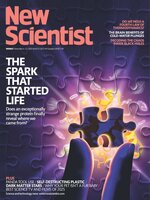 Dec 06 2025
Dec 06 2025
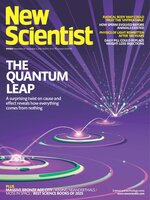 Nov 29 2025
Nov 29 2025
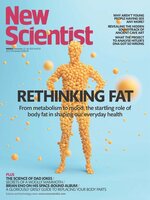 Nov 22 2025
Nov 22 2025
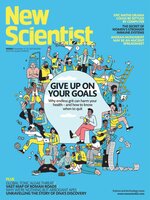 Nov 15 2025
Nov 15 2025
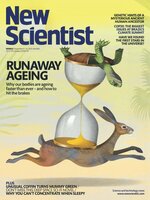 Nov 08 2025
Nov 08 2025
 Nov 01 2025
Nov 01 2025
 Oct 25 2025
Oct 25 2025
 Oct 18 2025
Oct 18 2025
 Oct 11 2025
Oct 11 2025
 Oct 04 2025
Oct 04 2025
 Sep 27 2025
Sep 27 2025
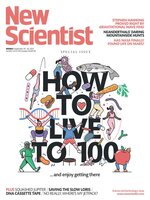 Sep 20 2025
Sep 20 2025
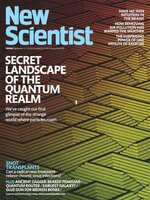 Sep 13 2025
Sep 13 2025
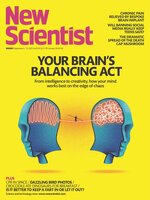 Sep 06 2025
Sep 06 2025
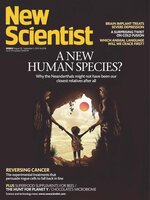 Aug 30 2025
Aug 30 2025
 Aug 23 2025
Aug 23 2025
 Aug 16 2025
Aug 16 2025
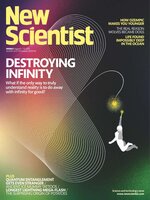 Aug 09 2025
Aug 09 2025
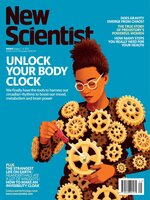 Aug 02 2025
Aug 02 2025
 Jul 26 2025
Jul 26 2025
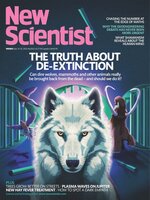 Jul 19 2025
Jul 19 2025
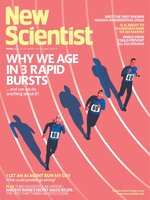 Jul 12 2025
Jul 12 2025
 Jul 05 2025
Jul 05 2025
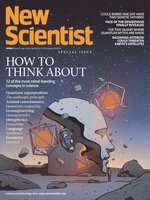 Jun 28 2025
Jun 28 2025